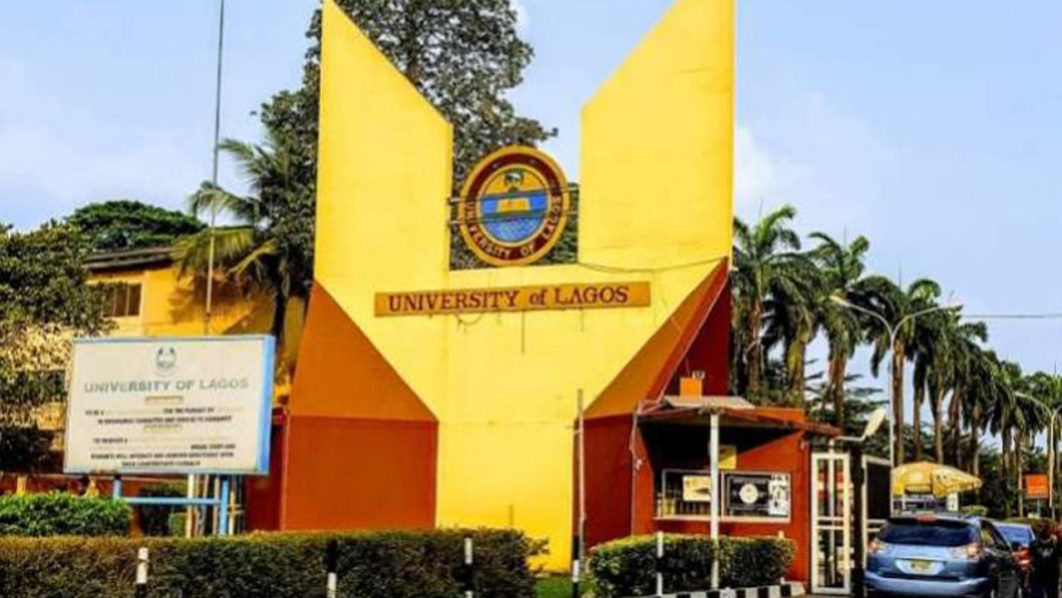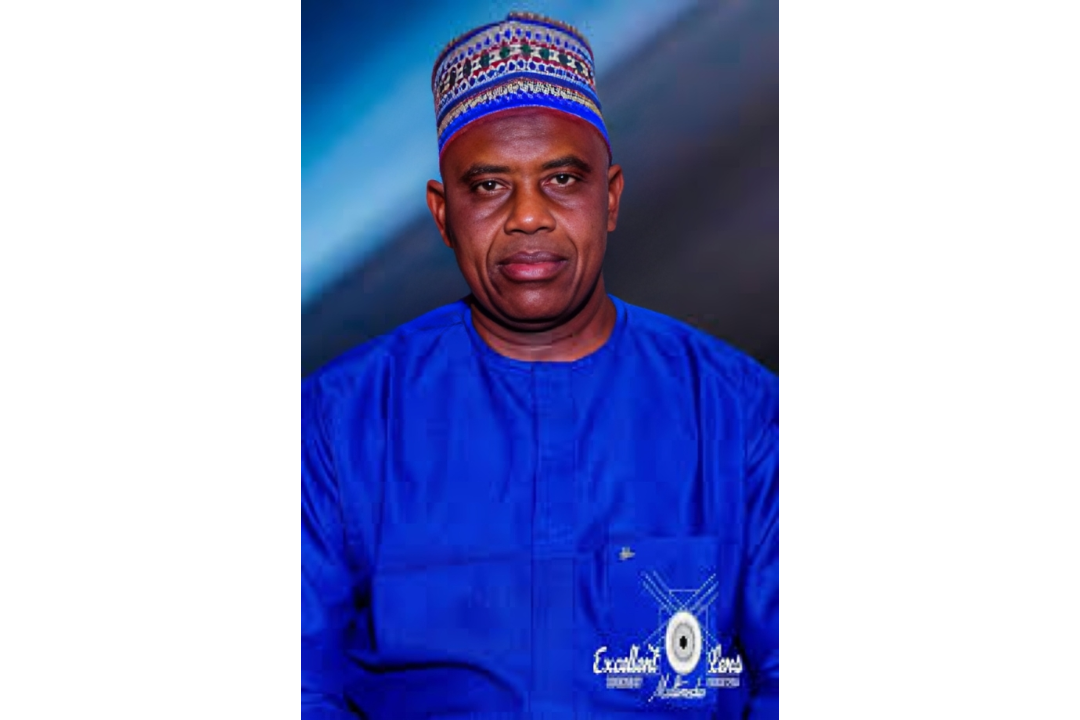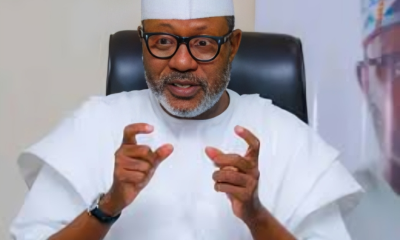Education
UNILAG Confirms Hike in Fees

…UNILAG hike Fees
The University of Lagos has announced an adjustment in the obligatory fees for both returning and new students of the institution.
This is contained in a statement by the university management issued to newsmen by the Communication unit on Friday night in Lagos.
According to the statement, the upward review in the fees is with effect from Sept.
1.“After careful deliberations with its stakeholders comprising of students, parents/guardians, staff unions and alumni among others, the university of Lagos management has reviewed the obligatory fees (mandatory charges for an academic session/year) of new and returning undergraduate students of the institution.
“The adjustment in these fees which will take effect from first semester 2023/2024 academic session, is in view of the prevailing economic realities and the need for the university to be able to meet its obligation to its students, staff and municipal service providers among others.
“It is also pertinent to note that the university has not increased its obligatory fees in recent years.
“Management therefore seeks the kind understanding and support of students and other stakeholders with assurance of its commitment toward ensuring that students get the best learning experience,” it stated.
A breakdown of the fees shows that the mandatory charges for one academic session for new undergraduate students include N126, 325, for courses without laboratory/studio.
The statement also indicated N176,325 as mandatory charges for one academic session for courses with laboratory and studio.
A further breakdown of the approved mandatory charges for one academic year or session for returning students showed that they would pay N100,750 for courses without laboratory and studio.
The approved mandatory charges for courses with laboratory and studio according to the statement is N140,250.
The statement further added that approved charges for all Medical students of the institution was N190,250.
It noted that utility charges of N20,000 was to be paid by all undergraduate students, while a total of N30,000 was to be paid by all final year students.
According to the statement, charges for field trips, where such is a mandatory requirement of the course of study, will be determined as the need arises. (NAN)
Education
NELFUND Pledges Tech-Driven Student Loan Access

Mr Akintunde Sawyerr, Managing Director of the Nigerian Education Loan Fund (NELFUND), has reaffirmed the Fund’s commitment to developing a technology-driven system aimed at enhancing easy and equitable access to student loans.
Sawyerr gave the assurance on Tuesday in Abuja while addressing representatives from Polytechnics, Monotechnics, and Institutes during a Stakeholders Engagement Session and Technical Workshop on NELFUND System Automation and Loan Application Processes.
He explained that the Fund was working towards a seamless, transparent platform that allowed students to confidently access loans without unnecessary stress.
“At NELFUND, our mission goes beyond disbursing loans.
It’s about opening doors and ensuring every young Nigerian with a desire to learn and grow has a real opportunity, regardless of their background, location, or field of study.“For too long, students, especially in technical institutions, have faced significant financial barriers. Many have had to drop out, while others never even considered applying.
“That’s the gap we at NELFUND aim to close but we can’t do it alone. This is a shared mission involving government institutions and the private sector,” Sawyerr said.
Sawyerr emphasised that NELFUND was not only providing financial support but also building a technology-driven infrastructure that enabled easier application processes, institutional verification, and fast, fair disbursement.
“We’re striving for stress-free access a system students can trust.
“Transparency is key so that no applicant is left in the dark. We rely on you, our institutional partners, to help bring this vision to life,” he added.
He urged institutions to partner with NELFUND, saying the goal was to build a system that would not only be functional and sustainable but also truly transformative.
“As we integrate NELFUND processes with institutional systems and standards, we must remember that at the centre of all this is the student, a young Nigerian with dreams and ambition. Everything we do must serve that student.
“The only way forward is through collaboration, open communication, and practical solutions,” he said.
Also speaking at the event, Iyal Mustapha, Executive Director of Operations at NELFUND, said that more than 320,000 students had received funding so far, with further verifications ongoing.
Mustapha clarified that discrepancies between registered students and those whose applications were successfully processed often stemmed from incomplete applications on the students’ part.
“We have 576,000 registrations on our portal, but only 516,000 completed applications. Some may have dropped out due to data issues or just wanted to test the system.
“We want to bridge this gap, and with your support, we can ensure more students access the institutional loan,” he said.
Mustapha further explained that the institutional loan, which is different from the monthly upkeep loan of N20,000, was disbursed directly to institutions.
He added that NELFUND was considering integrating directly with institutional portals to simplify the process for students.
“We’re exploring the possibility of deploying our IT teams to institutions to enable direct connection with your portals.
“Ideally, students should be able to apply via your platforms without having to come through NELFUND, making the process smoother and more accessible,” he said
Education
Dangote Varsity Confers Honorary Degrees on Kwankwaso, Mangal, others

The Aliko Dangote University of Science and Technology Wudil has announced plans to confer honourary Doctorate Degrees on some notable Nigerians in recognition of their selfless services to the nation.
The recipients include: Alhaji Dahiru Mangal, Chief Author Eze, Dr Adeniyi Raji (SAN), Alhaji Ado Mohammad and Sen.
Musa Kwankwaso.The university’s Vice-Chancellor, Prof.
Musa Yakasai, made this known on Tuesday at a pre-convocation press briefing.He said that the individuals were carefully selected based on their characters and humanitarian services.
The vice-chancellor said that the convocation ceremony was scheduled to commence on Wednesday.
Yakassai also added that, 18,000 students who have graduated from the university over the past seven years would be celebrated.
He further confirmed that comprehensive security measures have been implemented to guarantee the safety of lives and property throughout the event.
Yakassai said that Alhaji Aliko Dangote would be reappointed as the university’s Chancellor for the second time.
The vice-chancellor also announced that Gov. Yusuf of Kano State would be the visitor of the university during the ceremony.
He expressed appreciation to the state government for providing all the necessary logistics in preparations for a smooch convocation
Education
Massive JAMB Failure Sparks Concern Over Education Standards

The 1.5 million candidates who scored below 200 out of the 1.9 million who sat for the 2025 UTME conducted by the Joint Admissions and Matriculation Board (JAMB) have ignited national concern.
The concerns are in relation to the quality of education and students preparedness in the examination.
Reacting to the development, Ike Onyechere, Founder, Exam Ethics Marshall International (EEMI), in an interview on Tuesday, said that the outcome was not surprising.
According to Onyechere, the examination is now being administered with ethics and professionalism hence the massive failure.
He added that the massive failure had exposed the deep-rooted problems in the nation’s education system.
”JAMB has made commendable efforts to ensure the integrity of the examination process by reducing opportunities for malpractice.
”I don’t think the JAMB statistical analysis should surprise anybody,” he said.
He emphasised that universities were increasingly alarmed by the academic quality of incoming students, noting that many of them lack basic foundational knowledge necessary for tertiary education.
Onyechere attributed the trend to systemic issues, including inadequate preparation, the inclusion of underqualified candidates, and a widespread cultural dependence on exam fraud.
”There’s moral infrastructure decadence in the system. It’s not just about the students. It involves stakeholders; schools, parents, and the government.
“Many students rely on fraudulent means to pass, and now that JAMB has blocked those avenues, their lack of preparedness is glaring,” he added.
He also noted that many candidates were not academically ready, as some were still in SS2 or underage, having not completed the syllabus.
He proposed a reform in the registration process, suggesting that only candidates with five credits in WAEC or NECO be allowed to sit in future for the UTME.
According to him, this will significantly reduce the number of applicants from nearly 2 million to about 1 million and ensure a more qualified candidate pool.
He also dismissed claims that the Computer-Based Test (CBT) format could be a barrier to performance.
”The CBT is easier in many ways. It’s mostly objective, and technology is now part of everyday life, even market women are technologically inclined. We can’t blame CBT for the poor results,” added.
Onyechere urged students to focus on talent discovery and career alignment rather than chasing certificates.
“Exams are not rocket science. It’s about working hard and understanding your strengths. Education should be a journey of self-discovery, not just certification,” he said.
He applauded government efforts to prioritise trade and vocational subjects in the curriculum, underscoring the importance of practical skills in today’s world.
He called on education stakeholders to reflect on the deeper issues in the examination failure and implement reforms to save the future of Nigeria’s academic system
















